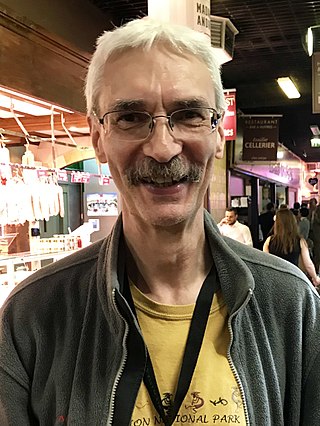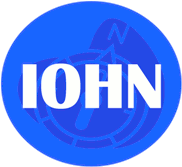Related Research Articles
The Open Group is a global consortium that seeks to "enable the achievement of business objectives" by developing "open, vendor-neutral technology standards and certifications." It has 900+ member organizations and provides a number of services, including strategy, management, innovation and research, standards, certification, and test development. It was established in 1996 when X/Open merged with the Open Software Foundation.
An information system (IS) is a formal, sociotechnical, organizational system designed to collect, process, store, and distribute information. From a sociotechnical perspective, information systems comprise four components: task, people, structure, and technology. Information systems can be defined as an integration of components for collection, storage and processing of data, comprising digital products that process data to facilitate decision making and the data being used to provide information and contribute to knowledge.
A Doctor of Science is a science doctorate awarded in a number of countries throughout the world.

Harrisburg University of Science & Technology, commonly referred to as Harrisburg University (HU), is a private STEM-focused university in Harrisburg, Pennsylvania, with an additional location in Philadelphia. Founded in 2001 as Harrisburg Polytechnic Institute, it offers STEM-focused degree and certificate programs.
The Doctor of Engineering is a research doctorate in engineering and applied science. An EngD is a terminal degree similar to a PhD in engineering but applicable more in industry rather than in academia. The degree is usually aimed toward working professionals.
The Association for Information Systems (AIS) is an international, not-for-profit, professional association for scholars of information systems that was established in 1994. The association publishes journals, organizes conferences, and provides a forum for information systems professors and managers. It has members in more than 100 countries.

The Linux Foundation (LF) is a non-profit organization established in 2000 to support Linux development and open-source software projects.

Gerhard Weikum is a German computer scientist and Research Director at the Max Planck Institute for Informatics in Saarbrücken, Germany, where he is leading the databases and information systems department. His current research interests include transactional and distributed systems, self-tuning database systems, data and text integration, and the automatic construction of knowledge bases. He is one of the creators of the YAGO knowledge base. He is also the Dean of the International Max Planck Research School for Computer Science (IMPRS-CS).

Artificial Intelligence System (AIS) was a volunteer computing project undertaken by Intelligence Realm, Inc. with the long-term goal of simulating the human brain in real time, complete with artificial consciousness and artificial general intelligence. They claimed to have found, in research, the "mechanisms of knowledge representation in the brain which is equivalent to finding artificial intelligence", before moving into the developmental phase.

Integrated Operations in the High North is a unique collaboration project that during a four-year period starting May 2008 is working on designing, implementing and testing a Digital Platform for what in the upstream oil and gas industry is called the next or second generation of Integrated Operations. The work on the Digital platform is focussed on capture, transfer and integration of real-time data from the remote production installations to the decision makers. A risk evaluation across the whole chain is also included. The platform is based on open standards and enables a higher degree of interoperability. Requirements for the digital platform come from use cases defined within the Drilling and Completion, Reservoir and Production and Operations and Maintenance domains. The platform will subsequently be demonstrated through pilots within these three domains.
The World Academy of Science, Engineering and Technology or WASET is a predatory publisher of open access academic journals. The publisher has been listed as a "potential, possible, or probable" predatory publisher by American library scientist Jeffrey Beall and is listed as such by the Max Planck Society and Stop Predatory Journals. WASET's estimated annual revenue in 2017 alone was over $4 million, with other estimates ranging from $8.9 million to $11.9 million for the years 2014 to 2019 combined.
The ACM Conference on Information and Knowledge Management is an annual computer science research conference dedicated to information management (IM) and knowledge management (KM). Since the first event in 1992, the conference has evolved into one of the major forums for research on database management, information retrieval, and knowledge management. The conference is noted for its interdisciplinarity, as it brings together communities that otherwise often publish at separate venues. Recent editions have attracted well beyond 500 participants. In addition to the main research program, the conference also features a number of workshops, tutorials, and industry presentations.

The International Information System Security Certification Consortium, or ISC2, is a non-profit organization which specializes in training and certifications for cybersecurity professionals. It has been described as the "world's largest IT security organization". The most widely known certification offered by ISC2 is the Certified Information Systems Security Professional (CISSP) certification.
Varun Grover is an American Information systems researcher, who is the George & Boyce Billingsley Endowed Chair and distinguished professor at the Walton School of Business, University of Arkansas. From 2002-17, he was the William S. Lee Distinguished Professor of Information Systems at Clemson University, where he taught doctoral seminars on methods and information systems. He is consistently in the top 3 IS researchers in the world. He has an h-index of 100, among the top 5 in his field Grover has around 52,000 citations in Google Scholar and over 13,900 citations in Web of Science.

Italian Sommelier Association, 'AIS' is an Italian non-profit organization founded in Milan on July 7, 1965, officially recognised and legally acknowledged by the Italian government on April 6, 1973, with formal President of the Republic decree #539 in 1973. Its founding members were Prof. Gianfranco Botti, Jean Valenti, Leonardo Guerra and Italian sommelier Ernesto Rossi. Italian Sommelier Association is part and founding member of the Worldwide Sommelier Association (WSA), which is officially recognized across the world, wherever it is present with an affiliate. AIS is one of the oldest and actually the largest sommelier association in the world.
Helmut Krcmar holds the Chair for Information Systems in the Department of Informatics at the Technical University of Munich (TUM), Germany since 2002 with a joint appointment to TUM School of Management. Krcmar served as Dean of the Faculty of Informatics from 10/2010 until 09/2013. In July 2018 he was elected Vice Dean TUM School of Management and Founding Dean TUM Campus Heilbronn. He is academic director of the SAP University Competence Center @ TUM. Krcmar has supervised more than 100 Ph.D. students. He is also speaker of the directory board of Fortiss GmbH, Research Institute of the Free State of Bavaria for Software and Systems.

Filecoin (⨎) is an open-source, public cryptocurrency and digital payment system intended to be a blockchain-based cooperative digital storage and data retrieval method. It was developed by Protocol Labs and shares some ideas from InterPlanetary File System allowing users to rent unused hard drive space. A blockchain mechanism is used to register the deals. Filecoin is an open protocol and backed by a blockchain that records commitments made by the network’s participants, with transactions made using FIL, the blockchain's native currency. The blockchain is based on both proof-of-replication and proof-of-spacetime.

Jan Marco Leimeister is a German university professor for business information systems from Bietigheim-Bissingen. He is tenured professor of business information systems and director at the Institute of Information Management. at the University of St. Gallen as well as head of the Department of Information Systems and director at the Research Center for Information System Design (ITeG) at the University of Kassel.
References
- ↑ "2008 Australian Ranking of ICT Conferences" (PDF). 2008. Retrieved 2012-08-13. (Tier A+, highest.)
- ↑ Zaïane, Osmar R. (August 2009). "Computer Science Conference Rankings" . Retrieved 2009-08-25. (Rank 1, highest.)
- ↑ "Conference Listing". CAIS/NTU. Archived from the original on 2009-12-04. Retrieved 2009-08-25. (Rank A, second-highest.)
- ↑ Kumar, Sanjeev (April 2007). "Research Conferences in Information Systems". Archived from the original on February 26, 2009. Retrieved 2009-08-25. ("…the most prominent research conference in IS research area…")
- ↑ ICIS Site Selection Criteria
- ↑ "Conferences - Association for Information Systems (AIS)".
- ↑ "Conferences - Association for Information Systems (AIS)".
- ↑ ICIS 2020 Official Website
- ↑ ICIS 2019 Official Website
- ↑ "ICIS 2018 Official Website". Archived from the original on 2018-06-18. Retrieved 2017-03-19.
- ↑ ICIS 2017 Official Website
- ↑ "ICIS 2016 Official Website". Archived from the original on 2018-06-12. Retrieved 2017-03-19.
- ↑ "ICIS 2015 Official Website". Archived from the original on 2018-03-21. Retrieved 2013-10-05.
- ↑ "ICIS 2014 Official Website". Archived from the original on 2020-04-12. Retrieved 2013-10-05.
- ↑ "ICIS 2013 Official Website". Archived from the original on 2020-02-02. Retrieved 2011-07-05.
- ↑ "ICIS 2012 Official Website". Archived from the original on 2020-07-06. Retrieved 2011-07-05.
- ↑ "ICIS 2011 Official Website". Archived from the original on 2019-08-30. Retrieved 2011-01-07.